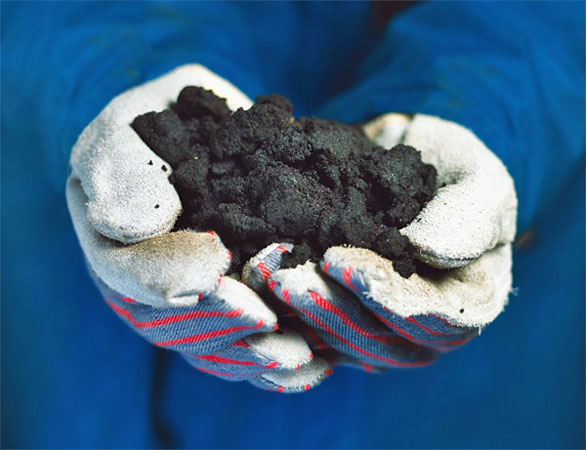 Canada’s oil sands have been a touchy subject for years. They have been cited as a destructive force in the Albertan landscape and environment.
Canada’s oil sands have been a touchy subject for years. They have been cited as a destructive force in the Albertan landscape and environment.
The same oil sands are now attempting to expand and incorporate a brand new pipeline, dubbed ‘Keystone XL,’ between Alberta and Texas.
This has brought forth extreme opposition from environmentalists across Canada and the U.S. It has been argued that CO2 gas emissions from oil sands are the highest in comparison to other sources. Bitumen, or asphalt, the product pulled from the oil sands causes significant environmental damage both near and far from the oil sands.
Bitumen is a highly viscous form of petroleum trapped within sand and clay. Environmental groups are concerned because of the large amounts of refining required to get to the bitumen.
One environmental concern is that the refinement process releases polluted water waste that travels into Alberta’s Firebag River and other freshwater sources. Another concern is that the pipeline will inevitably leak the bitumen into the surrounding environment during its 3,186 km journey from Hardisty, Alberta to Nederland, Texas.
The pipeline extends over the Ogallala Aquifer in the U.S., which supplies eight states including Texas with clean, fresh water.
Economic benefits
Although there is an impact to the environment through the growth of Albertan oil sands, there is a huge economic benefit.
TransCanada argues that the Keystone XL pipeline and the expansion of the oil sands will create “thousands and thousands” of jobs – especially during an economic downturn. Natural Resources Minister Joe Oliver also sees the economic benefit.
“The oilsands, we’ve been told, can generate $2.3 trillion in economic activity over the next 25 years,” Oliver told reporters.
“If Keystone goes ahead, that would add another $600 billion and hundreds of thousands of jobs can flow from the oil sands development.
Nobel Peace laureates
The oil sands are such a serious concern that Nobel laureates have become involved. A group of Nobel laureates have signed a letter asking Stephen Harper to stop the expansion of the oil sands.
The laureates include Mairead Maguire, Archbishop Desmond Tutu, Jody Williams, and Shirin Ebadi, among others.
In the letter they ask Harper to reject the Keystone XL pipeline, citing the environmental damage through the release of greenhouse gases and the impact it will have on human lives through “violent conflict and instability, as well as famine.”
The laureates also call for an end on the dependence of non-renewable energy sources, and instead to focus on renewable energy sources as “it is the right thing to do.”
The expansion of Albertan oil sands will be pending an approval on the Keystone XL pipeline. Both Canada and the U.S. will decide near the end of this year.
The approval of the pipeline comes at the same time as the European Union is pending a decision to classify bitumen ‘dirtier’ than conventional crude.



